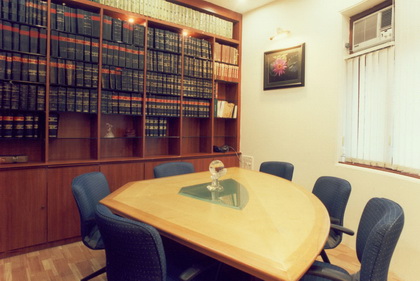Copyright Protection

Under Chinese copyright laws, a copyright means the right to own your creative work. It includes the rights to reproduce, distribute, perform, and display the work and to prepare derivative works from your original work. Copyright protection is automatic under international law, but in the event that your work is infringed evidence may be required to support your claim. A copyright can protect your ownership of an original work—including songs, books, articles, photographs, and other creative works that exist in a fixed and tangible form.
It also helps to deter infringement, particularly from those who do not understand copyright, if you make it clear that your work is protected under copyright law. So ensuring the best protection for your work relies on several factors. Copyright protection means that you decide who can use your work and for what purpose. Once you’ve established your copyright, no one else can use your work without your permission. Copyrighting your work gives you control over how your work is used and represented. There are four simple steps you can take that can help ensure your work is safe.
1.Ensure your work is properly marked
A correctly worded notice will deter infringement, as it states that the work is protected under law.Under China copyright laws, only original works are protected by copyright, and non-original works, e.g., the products of conscious or subconscious copying, are liable to face infringement suits. Original artists must be able to prove prior creation and access/actual copying to prevail on an infringement suit. Given that many ideas are inspired by/the product of other works, and given that the internet makes so many such works readily accessible, access is often not terribly difficult to prove.
Although a copyright notice is not required, as work is automatically subject to copyright protection under law, displaying a notice shows that you have an awareness of copyright and take infringements of your work seriously.
2.Register your work
Among other things, registering your copyright establishes a public record of your copyright claim, can help prove ownership, and is required if you ever want to sue for copyright infringement. If your work is infringed and your claim to copyright is disputed, i.e. in a plagiarism case - where the other party claims the work is theirs, you may need evidence to help prove your claim.
This valuable evidence can be provided by our copyright registration service that provides verifiable proof of the date and content of your work. As specialists in this area, we ensure that you have the very best evidence to support your rights, while our service policies ensure that the evidence is always available when you need it.
3.Keep or register supporting evidence
Copyright protections cover original works of authorship, including literary, dramatic, musical, artistic, and certain other intellectual works. Copyrighted work must be original, and it must be fixed into a tangible form. Ideas themselves can't be copyrighted. Supporting evidence falls into two categories:
- Evolution of ideas: This is evidence of the progression of the work. Early drafts, synopsis, rough recordings, sketches, etc. are all evidence that the work progressed over time, rather than being copied from elsewhere. Although it is possible to fake such evidence, it is often time consuming to do so, so it can be fairly good evidence to demonstrate that you created the work from scratch over a period of time.
- Footprints or watermarking: Authors, artists, choreographers, architects, and other creative professionals all benefit from copyright registration. This is normally evidence inserted into finished documents that will identify the author in some way, such as deliberate mistakes, or hidden data that can be read using special applications.
Registering your copyright establishes a public record of your claim, allows you to take legal action against infringement, and may entitle you to statutory damages and attorney’s fees in court.
4.Agreement between co-author
If your work is a joint venture, be sure you know exactly where you stand, who will own what rights, and what happens when someone leaves. If you co-write a book with someone, both of you own the book as joint owners in what the copyright law calls a joint work. This is irrespective of whether one of you writes the first several chapters and the other the latter chapters, or you both write the book. Both of you have an undivided ownership in the book, i.e., you each own 50% of the whole book.
5. Copyright Contracts and Licenses
Negotiation and preparation of copyright-related contracts, assignments, work-for-hire agreements, and licenses. You could surely benefit from having a China copyright lawyer look at the draft agreement that you and your collaborator draw up. Indeed, the terms of your collaboration agreement could turn out to be more important than the terms of your publishing agreement. But we realize that, because of the expense, a legal review is not always going to happen. Generally speaking, memorializing your understanding with your collaborator in writing is better than not doing so -- even if you are unable to have a lawyer take a look at it.
As experience China copyright lawyers, we can help with your copyright protection needs in China.